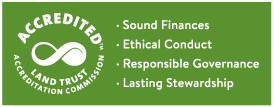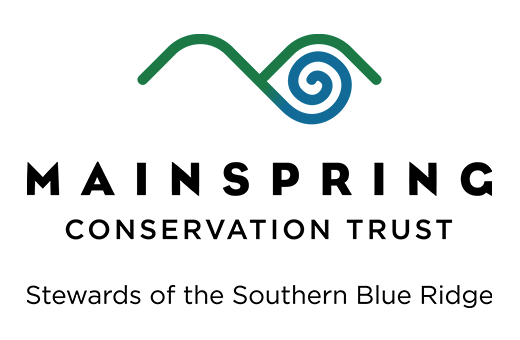
From The Franklin Press, March 7, 2014
We hope you had a chance to read our last column, and if you did, you’ll know that Ph.D. students from the University of Georgia’s Integrative Conservation (ICON) program are working with the Land Trust for the Little Tennessee (LTLT) and the Coweeta Long Term Ecological Research (LTER) Project this spring to develop a plan for implementing a new southern Appalachian Stream Visual Assessment Protocol (saSVAP) specific to this region, adapted by Jeremy Sullivan, a Ph.D. candidate at UGA. But what is a Stream Visual Assessment Protocol, and why is it important for the region?
Until recently, scientists learned about stream health using specialized equipment and laboratory analysis, which could be quite expensive and time consuming. These costs and time requirements limited the amount of data scientists could collect on a single stream. However, in the late 1990s, a team of researchers proposed that more data could be collected if they could come up with a set of questions anyone could answer through careful observation.
This was groundbreaking, because it meant that anyone could help monitor stream health, even without any formal scientific training. After all, a huge percentage of streams are located on private property and aren’t accessible to scientists. Implementing SVAP greatly increases the amount of data available to researchers interested in stream ecology and conservation, and it would help scientists identify streams and watersheds that require care and rehabilitation. In other words, SVAP has the potential to help conservation organizations and government agencies be more efficient in spending their time and money.
Sullivan has been working with LTLT scientists Dr. Bill McLarney and Jason Meador, who spearhead citizen science programs in the Little Tennessee watershed. They work with groups of volunteers and students to collect data about the environment through biomonitoring activities. Dr. McLarney has been conducting biomonitoring projects
in the watershed since 1990, resulting in the largest dataset of watershed health in Appalachia. Over the next year, the new saSVAP will be incorporated into existing biomonitoring programs at LTLT.
Meador was kind enough to take some time and talk about the ways that the southern Appalachian version of SVAP would benefit stream ecology in the region.
What is the purpose of saSVAP for the LTLT?
JM: It’s mostly for education. We want folks to think about what makes a stream healthy, more or less…if a stream needs restoration, we can work with landowners to fix that in the future. But we don’t have enough folks coming to us asking, requesting help, but I think it’s mostly because they don’t realize that there’s something wrong with the streams.
Do you have ideas for what you’ll do with the data that folks collect?
JM: Actually, we do. We’re hoping that data will lend itself for us to identify areas that may be in need of restoration that we don’t know of. We can’t drive each one of these streets and check out every single stretch of stream. So, for a landowner to bring something to our attention because it has to do with a particular section of stream near to their house, or right at their house, if they said it ranks poorly, we’ll obviously check it out. Even more so, as far as a long-term data collection, if it generally gets a high ranking and then starts to rank poorly, that’s something else that will bring to our attention, “Oh, maybe there is something going on here that we need to look at.”
If folks want to participate, who should they get in touch with?
JM: Get in touch with us! I’d be the lead contact for anybody interested in participating.
Note: You can reach Jason Meador at [email protected] or at (828) 524-2711 ext. 309.
This column is produced by members of the Coweeta Listening Project (CLP), a branch of the Coweeta Long Term Ecological Research Program. Views expressed here are not representative of the USDA Forest Service or the Coweeta Hydrologic Lab. Please share questions, comments, or suggestions for future topics at [email protected] or Coweeta Listening Project, UGA, 210 Field St., Room 204, Athens, GA 30602.


